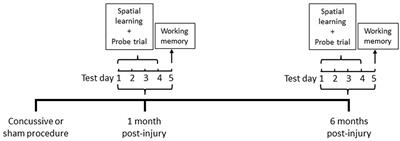EDITORIAL
Published on 17 Dec 2019
Editorial: Developing Successful Neuroprotective Treatments for TBI: Translational Approaches, Novel Directions, Opportunities and Challenges
doi 10.3389/fneur.2019.01326
- 1,863 views
- 5 citations
39k
Total downloads
147k
Total views and downloads
Select the journal/section where you want your idea to be submitted:
EDITORIAL
Published on 17 Dec 2019
MINI REVIEW
Published on 16 Aug 2019

ORIGINAL RESEARCH
Published on 30 Jul 2019

ORIGINAL RESEARCH
Published on 02 Jul 2019

ORIGINAL RESEARCH
Published on 11 Jun 2019

ORIGINAL RESEARCH
Published on 12 Feb 2019

REVIEW
Published on 17 Jan 2019

ORIGINAL RESEARCH
Published on 15 Nov 2018

MINI REVIEW
Published on 24 Oct 2018

ORIGINAL RESEARCH
Published on 24 Oct 2018

ORIGINAL RESEARCH
Published on 02 Oct 2018

REVIEW
Published on 07 Aug 2018

